Færsluflokkur: Bloggar
23.3.2011 | 15:19
Fult af góðum, nýjum og notuðum eignum
Bloggar | Slóð | Facebook | Athugasemdir (0)
8.8.2009 | 14:11
“Moving to Bulgaria”
As part of our “Moving to Bulgaria” series, we are pleased to add Education to the growing library of key areas that are particularly important to those thinking of moving here. Here, we explore how the Bulgarian educational system operates; how students access and progress through it; and how it compares with - and differs from - the education with which expats and their children may be more familiar ...
Structure and Background:
The Bulgarian constitution states that: everyone, including citizens from EU and EEA countries who are living and working in the country, shall have the right to free education in state and municipal schools. This means that the only costs for which parents are asked to pay for their children’s schooling in Bulgaria are textbooks, stationery and school field trips.
Bulgaria’s school year starts on September 15 (or the following Monday if this date falls on a weekend) and comprises two terms, finishing in late May or early June. School attendance up to the age of 16 is compulsory and the educational system covers three levels: pre-school education, basic and secondary education and higher education. Pre-school education includes children from age 3 to 6 / 7. Nursery school attendance is optional. Basic education (grades 1 to 8) comprises primary school (grades 1 to 4) and pre-secondary school (grades 5 to 8). This can be attained at state owned, municipal and private schools. After successful completion of grade 4, a Certificate of Primary Education is issued, while a Certificate of Basic Education is issued after successful completion of grade 8.
Secondary education (grades 9 to 12 / 13) is divided into comprehensive, profile-oriented or vocational categories and is provided by comprehensive, profile-oriented or technical / vocational schools, together with a number of specialised and professional schools offering programmes such as the International Baccalaureat and / or vocational qualifications. After successful completion of secondary education a Diploma of Secondary Education is issued, together with a Certificate for Professional Qualification as appropriate. Holders of these qualifications are entitled to continue their education to a higher educational level, without restriction as to the choice of establishment. Admission to higher education institutions is based on interview and entrance examinations.
Table 1: Structure of Educational System
The Curriculum:
When students move to the level of secondary education, their studies and their curriculum becomes more specialised and are directed towards their particular programme or profile, namely: professional, technical or vocational. Before this, though, during their progression from Grade 1 to Grade 8, all students follow a standard, national curriculum as detailed by the Ministry of Education …
Table 2: The Curriculum - Grades 1 to 8
Educational Outcomes and Achievements:
The grading system for all schools is based on a six-point scale, from fair to excellent but students are not ranked against their peers. Students’ move from grade to grade by age and their progress through each level of the educational system is recognised through the award of a national Certificate or Diploma upon successful completion of the academic programme at the relevant level. The awards at each educational level can be summarised …
Primary School
Length of programme: 4 years
Age level: from 6 / 7 to 10
Award: Certificate of Primary Education
Basic School
Length of programme: 4 years
Age level: from 10 to 14
Award: Certificate of Basic Education
Comprehensive Secondary School
Length of programme: 4 years
Age level: from 14 to 18
Award: Diploma of Secondary Education
Vocational-technical school
Length of programme: 3 years
Age level: from 14 to 18 / 19
Awards: Diploma of Secondary Education & Certificate for Professional Qualification
Profile Orientated Secondary School
Length of programme: 5 years
Age level: from 14 to 19
Award: Diploma of Secondary Education
Professional school
Length of programme: 2 years
Age level: from 14 to 16
Award: Certificate for Professional Qualification
College and University
Length of programme: 3 to 5 years
Age level: from 18 / 19 to 21+
Award: Degree or Professional Qualification
Accessing the Education System:
Responsibility for the delivery of education rests with a partner network of central government, local authorities and heads or principals of individual schools / colleges. Accordingly, the starting point for new parents is to set up a meeting with the head of the local school. Even though children will probably not start at their new school until the following September, which is the only intake date used by most schools, this initial meeting should be arranged as soon as possible after moving to the area. Depending upon the time of year that you move to Bulgaria, this may mean a considerable delay before children join their new school and, while this delay might seem rather unusual, it does provide two significant advantages for foreign children. Firstly, it allows time for concentrated language studies, which will assist learning and integration when school attendance does start and, secondly, it offers an important period of social and (sometimes) emotional adjustment without the pressure of being “thrown in at the deep end”.
A further point to note is that initial entry in September offers the best arrangement for new students to fit in with their year group. Since, schooling in Bulgaria starts at age 7, rather than at 5 years as in the UK and western Europe, it is quite common for new foreign students to drop back a year so that they are taught with their same age group. Again, this ensures that a new student’s first year is as comfortable and free of pressure as it can be. Having said that, decisions about year group alignment are normally made between parents and the school head with reference to the individual student’s abilities and aptitudes.
Practical Issues:
While there are some structural features unique to Bulgaria’s educational system - eg: school starting age and the award of certificates based on programme completion rather than competitive grading, it is important to recognise that in terms of the fundamental issues such as: the curriculum, progression pathways and the international equivalence and recognition of qualifications, the Bulgarian system is now pretty much on a par with that of other EU countries. However, some of the underpinning reforms introduced in 2007 when Bulgaria joined the EU are still working their way through the system and it is important to note that, like most things in Bulgaria, education should be considered as a developing process, rather than a fixed and static system. In this context there are three current issues that may arise …
1) School Fees:
Historically, foreign children were charged for attending state schools unless they were permanent residents under Bulgarian law. This practice went back for at least 20 years and possibly as long as 60 years and has led to some instances of confusion where foreign nationals have been asked to pay school fees. Following EU accession, though, this law was changed so that children of EU and EEA European Economic Area citizens living in BG do not have to pay. There is case law related to this issue, namely that: … “on 19.03.2008, under Directive 2004/38EC, the Bulgarian Ministry of Education and Science confirmed and acknowledged that EU law has supremacy over National provisions and, in line with the EC Court of Justice case-law, and taking into account the Lisbon Treaty and the Charter of Fundamental Rights of the European Union, it is accepted that EU and EEA citizens shall have the right to free access to compulsory education in Bulgaria. Regional Education Inspectors and school Headmasters in Bulgaria have been informed of this decision”.
So, in the unlikely event that the Head of your local school is still not aware of this and asks you to pay school fees, the fact is that your child’s education is free. (for further information, see: Solvit Report for 2008, Annex 4, page 27: part of the EC Europa programme)
2) Entry Documents:
As indicated above, Bulgarian children moving to a higher level within the educational system will have been awarded a Certificate or Diploma upon completion of the academic programme at their previous level. This means that two Certificates will normally be acquired during progress through primary and secondary education, namely at age 10, a Certificate of Primary Education and at age 14, a Certificate of Basic Education. In addition to being recognition of a student’s achievement, each Certificate or Diploma is also an administrative requirement for progression to the next level. The problem that this generates for many parents is that there are often no equivalent certificates in other EU countries, which means that the new student may not have the necessary school entry level documents. In such cases, it will be necessary for the parents to obtain similar or related documents from their child’s previous school. In the UK, this would mean records of SATs or Key Stage Assessments, together with school reports and attendance records, all certified by the school or education authority.
These documents will normally need to be translated and will then be accepted for children up to the age of 13 years joining their Bulgarian school at up to Grade 7. But the situation changes for children aged 14 years and above who will be entering secondary education at Grade 8 or higher. Although the same documents from the previous school will be required, the Head of school may now require that these are translated, notarised and legalised as official documents. The rationale for this is that, because of the more rigorous academic requirements of secondary education, it is considered appropriate to ensure that older, non-Bulgarian speaking foreign students are not simply placed in to the system without formal validation of their previous standard of education.
3) Home Schooling:
At present, home schooling is not normally permitted in Bulgaria. Only certain children with handicaps may study at home and their programme must be approved and integrated with a school. Failure to do this is a criminal offence under Article 47 of the Public Education Act of 1999. However, there are new rules and measures currently under review, including individual education plans and distance learning. Individual plans are tailored to the child’s requirements and can include part home schooling and part attendance. Distance learning is at an experimental stage and may require registration with a school and scheduled consultations with teaching staff. Special, individual learning plans for children with special needs or those considered "talented or gifted" are also under consideration
Summary:
Here, we have specifically addressed only the national, public educational system, rather than private or international fee paying schools. The reason for this is simply that, while private sector education is perfectly feasible, the majority of expat families opt for the state system, usually with additional private tuition during the first few months until their children become comfortable with the language.
And, finally, when planning and making the transition to the new “system”, perhaps the most important point to recognise is that it is often expat parents who are more anxious and concerned than their children. In most cases, the children settle in easily, make new friends, master the language and quickly begin to benefit from their Bulgarian education - so, maybe we should be learning more from them …
Bloggar | Slóð | Facebook | Athugasemdir (0)
24.9.2008 | 09:18
Bulgaria on the Golfing Map
 Bulgaria has the ambition to turn into a leading golf destination in Europe. And this could very possibly happen as even the legendary golfer Gary Player exclaimed: “In my golf career I have not seen anything as good as this golf course” having in mind the Thracian Cliffs golf course located right on the coastline near the Black Sea town of Kavarna.
Bulgaria has the ambition to turn into a leading golf destination in Europe. And this could very possibly happen as even the legendary golfer Gary Player exclaimed: “In my golf career I have not seen anything as good as this golf course” having in mind the Thracian Cliffs golf course located right on the coastline near the Black Sea town of Kavarna.
Currently there are quite a few golf courses being built in Bulgaria, including a 50-million-euro development near Pravets, and experts believe that strong investment interest will eventually lead to up to the construction of up to forty more resorts in the near future.
However, at the moment there are five golf courses which are functioning. Two of them are near the capital Sofia, one is in the town of Sliven and two are with a unique location on the Black Sea coast.
The courses around Sofia include that near the town of Ihtiman (the first golf course in Bulgaria) – a wonderful 18-hole golf facility spanning over an area of over 500 decares with Par 71. The golf course is only 40 km from Sofia along the E-80 Trakia Highway.
The second golf course close to Sofia is the St. Sofia Golf Club in the village of Ravno Pole, only 10 km from the capital. The course offers the golfers 18 holes on an area of 650 decares, with par 72. Experts say the course complies with all European standards and it can host professional tournaments.
The 18-hole golf course which was opened in 2004 in the beautiful town of Sliven(southeast Bulgaria) spreads on an area of 500 decares, par 71. The golfing facility is only 90 km from the Black Sea allowing easy access to the coastal resorts and it boasts spectacular views to the Balkan mountain range.
Black Sea Rama golf course is one of the two newest functioning courses in the country as it was opened earlier this year. The 18-hole golf course was designed by the legendary golfer Gary Player and offers unbelievable views of Bulgaria’s Black Sea coast. Varna International Airport is just 30 minutes away, as well as some of the biggest seaside resorts.
Lighthouse Golf Resort near the Bulgarian Black Sea town of Balchik opened its doors this month and already hosted the Mercedes-Benz Open Golf Tournament. The designer of the golf course is the world-famous golfer Ian Woosnam. The prestigious 6747 yard, par 71 course is a perfect challenge for those who enjoy the great game.
There are few corners of Bulgaria where there are no golf courses being currently developed or already functioning. Golf is the new mantra, the magic word that will put Bulgaria on the global golfing map. The areas where most golf courses are located can be summarized as follows: near the capital Sofia, on the Black Sea and in a mountain region. Two of the four functioning courses are set close to the capital, this apparently being a winning move. Currently one more golf facility located close to Sofia is being constructed - Pravets Golf Resort & Country Club. Two other courses are being projected in the area – in the Sofia quarter of Gorna Banya and in the village of Kutina, to the north-west of the capital.
The Black Sea region is also a hot golfing spot, especially with the state-of-the-art Black Sea Rama and Lighthouse Golf Resort which opened earlier this year and the soon-to-be-finished Thracian Cliffs golf course. The three of them are located on the northern Black Sea coast, close to the towns of Kavarna and Balchik. There are a couple of other golfing projects underway along the Bulgarian coast in the southern resort town of Primorsko.
In terms of golf courses with mountain location the town of Razlog is the indisputable golfing winner. Currently the Pirin Golf & Country Club is under construction and three more golf courses are in the pipeline. Razlog’s more famous neighbor Bansko is to host the fifth course in the area.
The other famous Bulgarian ski resort – Borovets, is also going to witness the construction of a golf course which is currently underway in the nearby village of Dolna Banya.
Northern Bulgaria will not be left out of the golfing craze either – a new golf course is on the drawing table its location being the town of Razgrad in northeastern Bulgaria, in the Danube Plain.
Bulgaria has all that it takes to become the next golf gold mine having the strong support of the government and all the necessary features to achieve it – wonderful climate, beautiful nature and soon – a variety of golf courses to suit every mood and skill level. So next time you decide to swing the golf club why not do it in Bulgaria.
View all our offers on/near a golf course
Bloggar | Slóð | Facebook | Athugasemdir (0)
2.4.2008 | 13:57
Bulgaria history
History:
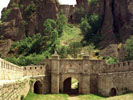 The territory of modern Bulgaria is among the earliest populated territories in the history of Europe – the first inhabitants date back to Neolithic era.
The territory of modern Bulgaria is among the earliest populated territories in the history of Europe – the first inhabitants date back to Neolithic era.
The Thracians settled down here around 3 500 BC. Throughout centuries Thracians, as well as Romans, proto-Bulgarians, Slavs, Greeks and Turks have inhabited the territory of modern Bulgaria and have contributed to the formation of its unique traditions and culture.
The gold Thracian treasures ( the Varna gold treasure is the oldest one in the world), The Slav alphabet (created in the 9th century by the brothers Kiril and Metodi), the miniatures in the gospel of Tsar Ivan Alexander (kept in the British Museum in London) represent a small part of the country’s contribution to European culture and world civilization. Nine sites in Bulgaria are included in UNESCO’s World Heritage list.
Bulgaria dates back 1300 years (founded in 681 by Khan Asparuh) and it is among the most ancient countries in Europe. Bulgarian history keeps the memory of great rulers. Under Khan Krum’s rule (803-814), Bulgaria’s boundaries reached as far as the Empire of Carl the Great to the West, Constantinople – the capital of the Byzantine Empire to the East. In 864, during the reign of Tsar Boris I Michail, Bulgarians accept Christianity as an official religion. The name of Tsar Simeon I (893- 927) is usually associated with the “Golden Century of Bulgarian Culture”. In addition, the territory of the country was expanded as far as the Black and Aegean seas. The Second Bulgarian Kingdom was founded in 1186 after the uprising of the boyars Assen and Petar and it is a successful completion of approximately two centuries struggles for liberation from Byzantine influence.
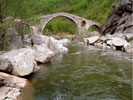 In 1396, the seven centuries old country was conquered by the Ottoman Empire and spent 500 years under its rule. That period is associated with the formation of the Bulgarian nation and development of educational traditions. A major inspiration for the process is the work of the Hilendar monk Paisii Hilendarski “History of Slavs and Bulgarians”, written in 1762.
In 1396, the seven centuries old country was conquered by the Ottoman Empire and spent 500 years under its rule. That period is associated with the formation of the Bulgarian nation and development of educational traditions. A major inspiration for the process is the work of the Hilendar monk Paisii Hilendarski “History of Slavs and Bulgarians”, written in 1762.
The major figures in the movement for liberation are Georgi Sava Rakovski – a writer and a journalist; Vassil Levski – author of the strategy and ideology of the struggles; Ljuben Karavelov - a writer and a journalist, leader and ideologist; Hristo Botev – a poet and a journalist, a revolutionary and national hero.
In 1876 the April uprising broke out - the first organized attempt for liberation. The uprising is brutally suppressed but the bloodshed compelled the attention of the European countries. In 1978, as a result from the Rusian-Turkish wars (1877-1878), the Bulgarian state is restored, but its territory is divided between Kingdom Bulgaria, governed by Prince Alexander Batenberg, East Rumelia, governed by the general- governor Alexander Bogoridi and Thracia and Macedonia, which remained under Ottoman rule.
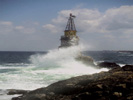 During the Second World War, king Boris III supported the public opinion and did not permit the deportation of 50 000 Jews from the country.
During the Second World War, king Boris III supported the public opinion and did not permit the deportation of 50 000 Jews from the country.
On November 10, 1989, came the end of the communist rule which was established in 1944-45 and irreversible changes have been taking part in the country ever since. A new Constitution was accepted (1991), political parties were restored; nationalized properties were given back to their rightful owners.
Bulgaria became a member of NATO on 29th March, 2004, and on January 1st, 2007, the country became a member of the European Union.
Bloggar | Slóð | Facebook | Athugasemdir (1)
20.3.2008 | 17:40
Búlgaría; STARA PLANINA MOUNTAINS

STARA PLANINA MOUNTAINS also called the Balkan Mountains, stretches from the Serbian border to the Black Sea and splits the country into two parts: North and South Bulgaria. Although the range is not very high with the highest peak Botev at 2,376m, its view is not only scenic and beautiful, but stunning. It is rich in deciduous forests, mainly of oak and beech. The mountains are inhabited by deer, hares, bears, foxes and wild boar.
Tucked away in the folds of the mountains and in the beautiful and world famous Rose Valley are a number of small towns - Veliko Turnovo, Arbanassi, Dryanovo, Gabrovo, Bozhentsi, Kotel, Zheravna, Troyan, Tryavna, Kazanlak, Kalofer, Sopot, Koprivstitsa , all steeped in history, lively in the summer and yet sleepy during the cold winters. Breath the crystal clean air, drink safely from the abundance of mineral rich mountain springs and absorb the calmness of life as the locals live and work their traditional crafts from centuries past. Untouched, traditional architecture together with warm open hospitality, the mountains are a welcoming place for any visitor.
Bloggar | Slóð | Facebook | Athugasemdir (0)
19.3.2008 | 16:26
Bulgaria Once Again Takes Property Price Lead
Bulgaria has once taken the lead in world real estate price increase in the last quarter of 2007, a ranking of the British company Knight Frank shows. The prices have gone up by 33.7% compared to the same period in 2006. Bulgaria was in the lead in the third quarter as well, when the annual increase was 30.6%. The increase was greatest in the regions of Vidin and Rousse while in Sofia it even exceeded 50%. Bulgaria is followed by Singapore (31.3%), Russia (30%) and Poland (22.4%). However, there was a decrease in the real estate prices in the USA (- 0,3%), Germany (- 4.3%), Latvia (- 7.1%), Ireland (- 7,3%) and Estonia (- 14.5%). Sofia also ranked 51st from a total of 58 locations in a 2007 office price ranking, a Cushman & Wakefield report reads. The average monthly office rents in Bulgaria amounted to 19 EUR/sq.m. The demand of first-class offices exceeds the supply and the unoccupied areas amount to less than 5%. View our hot offers! |
Bloggar | Slóð | Facebook | Athugasemdir (0)
14.3.2008 | 18:52
Búlgaría: THE RILA MOUNTAINS
 THE RILA MOUNTAINS rise to the south of Sofia and are the highest mountains on the Balkan Peninsula. The highest peak – Moussala (literally meaning ‘near to God’) rises 2,925m above the sea level. The wind velocity is often over 40meters per second and the snow cover, up to 2 meters thick, remains until the end of June.
THE RILA MOUNTAINS rise to the south of Sofia and are the highest mountains on the Balkan Peninsula. The highest peak – Moussala (literally meaning ‘near to God’) rises 2,925m above the sea level. The wind velocity is often over 40meters per second and the snow cover, up to 2 meters thick, remains until the end of June.The Rila Mountains were once covered by glaciers, which left some 180 lakes glistening among the green meadows and the rocky screens. The deepest is the lake called “The Eye”, from the Seven Rila Lakes, situated on different terraces ranging from 2,100m to 2,800 m above the sea level, very close to one another in a valley.
The deepest and the longest rivers on the Balkan Peninsula, the Maritsa, Iskar, Mesta, also rise in Rila. The Rila Mountains are difficult to climb but roads have been built for the convenience of mountaineers, hikers and tourists.
 The resort of Borovets is currently Bulgaria’s largest ski centre, created at the end of the 19th century. It is located 1350 above sea level on the northern slopes of the Rila Mountains among age-old pine woods, at the foot of peak Mousala. Borovets is a resort of alpine type and provides excellent opportunities for a whole range of winter sports. The resort has twice hosted World Cup Alpine skiing rounds. It is also famous for its world-class biathlon track. The slopes of Borovets have a permanent snow cover from November to May, more than 1.5 m thick. Ski runs of various difficulty provide opportunities for the full range of skill levels. This excellent resort combines the convenience of modern hotels and chalets with the sweet smelling forests of spruce and pine. Borovets has spectacular views and the cleanest air you are likely to find. During the summer you’ll find glorious walking country around Borovets and during winter, a lovely ski resort.
The resort of Borovets is currently Bulgaria’s largest ski centre, created at the end of the 19th century. It is located 1350 above sea level on the northern slopes of the Rila Mountains among age-old pine woods, at the foot of peak Mousala. Borovets is a resort of alpine type and provides excellent opportunities for a whole range of winter sports. The resort has twice hosted World Cup Alpine skiing rounds. It is also famous for its world-class biathlon track. The slopes of Borovets have a permanent snow cover from November to May, more than 1.5 m thick. Ski runs of various difficulty provide opportunities for the full range of skill levels. This excellent resort combines the convenience of modern hotels and chalets with the sweet smelling forests of spruce and pine. Borovets has spectacular views and the cleanest air you are likely to find. During the summer you’ll find glorious walking country around Borovets and during winter, a lovely ski resort.* Borovets is located just 73 km from Sofia and is easily accessible by car or bus.
Bloggar | Slóð | Facebook | Athugasemdir (0)
13.3.2008 | 14:48
Búlgaría: STARA PLANINA MOUNTAINS

STARA PLANINA MOUNTAINS also called the Balkan Mountains, stretches from the Serbian border to the Black Sea and splits the country into two parts: North and South Bulgaria. Although the range is not very high with the highest peak Botev at 2,376m, its view is not only scenic and beautiful, but stunning. It is rich in deciduous forests, mainly of oak and beech. The mountains are inhabited by deer, hares, bears, foxes and wild boar.
 Tucked away in the folds of the mountains and in the beautiful and world famous Rose Valley are a number of small towns - Veliko Turnovo, Arbanassi, Dryanovo, Gabrovo, Bozhentsi, Kotel, Zheravna, Troyan, Tryavna, Kazanlak, Kalofer, Sopot, Koprivstitsa , all steeped in history, lively in the summer and yet sleepy during the cold winters. Breath the crystal clean air, drink safely from the abundance of mineral rich mountain springs and absorb the calmness of life as the locals live and work their traditional crafts from centuries past. Untouched, traditional architecture together with warm open hospitality, the mountains are a welcoming place for any visitor.
Tucked away in the folds of the mountains and in the beautiful and world famous Rose Valley are a number of small towns - Veliko Turnovo, Arbanassi, Dryanovo, Gabrovo, Bozhentsi, Kotel, Zheravna, Troyan, Tryavna, Kazanlak, Kalofer, Sopot, Koprivstitsa , all steeped in history, lively in the summer and yet sleepy during the cold winters. Breath the crystal clean air, drink safely from the abundance of mineral rich mountain springs and absorb the calmness of life as the locals live and work their traditional crafts from centuries past. Untouched, traditional architecture together with warm open hospitality, the mountains are a welcoming place for any visitor. Bloggar | Slóð | Facebook | Athugasemdir (0)
12.3.2008 | 09:55
BULGARIAN BLACK SEA COAST
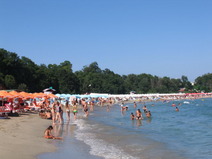 The Bulgarian Black Sea Coast is the place to be in summer. For travellers who want to experience the beauty of a European beach resort without paying outrageous prices, there's nothing like the 235-mile Black Sea coast of Bulgaria. Much of the coast is covered by long beaches with fine white sand. The sea itself is non-tidal, less salty and warmer than the Mediterranean. The coast is also dotted with mineral springs with curative properties, used as part of the facilities in the health and spa centres and the hotels, some of which are open to the public too. Add the abundance of sunshine and the Black Sea Riviera is the unspoilt place in the sun.
The Bulgarian Black Sea Coast is the place to be in summer. For travellers who want to experience the beauty of a European beach resort without paying outrageous prices, there's nothing like the 235-mile Black Sea coast of Bulgaria. Much of the coast is covered by long beaches with fine white sand. The sea itself is non-tidal, less salty and warmer than the Mediterranean. The coast is also dotted with mineral springs with curative properties, used as part of the facilities in the health and spa centres and the hotels, some of which are open to the public too. Add the abundance of sunshine and the Black Sea Riviera is the unspoilt place in the sun.Eleven of the beaches received the BLUE FLAG in 2003 recognition for their environmental and safety standards. The whole coast is dotted with private villas and houses in proximity to the resorts offering the best of two worlds - privacy and opportunity for nightlife in the commercial resorts.
The resorts have been purpose-built away from the cities but near enough if you wish to find out how the locals live.
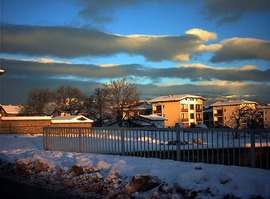 Some of the main seaside resorts are Sunny Beach, Golden Sands, Albena, St. Constantine, Elenite, etc. Two of the most popular coastal towns are Sozopol, an artistic community famous for its ancient architecture, folk festivals and art galleries, and the ancient port town of Nessebar, with dozens of Byzantine churches and unique 19th-century houses.
Some of the main seaside resorts are Sunny Beach, Golden Sands, Albena, St. Constantine, Elenite, etc. Two of the most popular coastal towns are Sozopol, an artistic community famous for its ancient architecture, folk festivals and art galleries, and the ancient port town of Nessebar, with dozens of Byzantine churches and unique 19th-century houses.Varna and Burgas are the largest airport cities on the Black Sea coast. Other popular towns and resorts (from north to south) are Kavarna, Balchik, Obzor, St. Vlas, Ravda, Pomorie, Primorsko, Kiten, Tzarevo, Ahtopol and Sinemoretz.
Bloggar | Slóð | Facebook | Athugasemdir (0)
7.3.2008 | 11:59
Búlgaría: The Ten Reasons

1. Feeling welcome in a foreign country. This is the thing everyone considers when taking the crucial decision to move abroad – either permanently or for a few weeks a year. The feedback we have received from you over these last 5 years indicates that first BulgarianProperties and later your new neighbours have turned out to be extremely helpful and nice people who have done a lot of things to make you feel at home. Some of you have even said that the attitude of the locals was one of the things that helped you integrate much easier than you had expected.
2. Will I receive the necessary level of professionalism, help and advice that I need when searching for a property? Your comments say that this is one of the most worrying issues when buying a real estate (not only abroad) and you say that you did receive it from BulgarianProperties. Most of you comment that your real estate agents guided you step by step through the process thus alleviating the stress and even making the process fun.
3. Smooth and easy procedure when buying my property. We know what it is like to see a property on the internet, to like it and to want to own it. The fact that it is abroad is a minor detail; at least that is what we can see from your feedback. You say that the procedure was made extremely smooth by BulgarianProperties who guided you every step of the way.
4. Can I buy property without ever setting foot in Bulgaria? In todays progressive world, and with the help of the Internet, everything can be achieved without even leaving your armchair! Although buying property is not the same as buying a watch or a dress, according to your e-mails BulgarianProperties has managed that task quite well. Some of you have bought your dream real estate with the push of a few buttons on the keyboard and the skillful guidance of our real estate agents.
5. Paperwork! Now this is a dirty word when talking about property purchasing. Especially when you have set your mind on buying a home abroad. You sit and worry whether you will receive the necessary advice, whether you will be helped adequately in the specific country, whether it won’t turn out to be too expensive. The conclusions we made from your feedback are identical – all of you are now the proud owners of a home/homes in Bulgaria saying that the paperwork was, in fact, made quite easy by the staff of BulgarianProperties!
6. Up-to-date information. As you know, the legislation in a country changes constantly and the most important thing when thinking of purchasing a home is to find the right people who know all the changes and can provide you with adequate advice. From what we have been reading in your comments we can see the result: happy homeowners gratified by the speedy receipt of sufficient and current information from the experienced associates of BulgarianProperties.
7. Expedience/efficiency in replying. After a decision to buy is taken comes the gathering of information. We know how excruciating it is to be kept waiting for too long to receive a reply therefore we have a policy according to which we reply to our clients within 24 hours of their inquiry. We believe it is important to provide our clients with as much details as possible in order to make them feel secure in their choice. Your e-mails say to us that this policy works, and quite well at that.
8. Friendly attitude. This is something that can most definitely make the potential buyer choose to work with a company and the lack of it - to make them avoid this company. BulgarianProperties, after five dynamic years of operations on the real estate market, have numerous fans and friends thanks to the open approach and many smiles which we can feel even through the e-mails.
9. Making you feel our most important client. This is a winning strategy and now we can already tell you our little secret – EACH AND EVERY ONE OF YOU IS, IN FACT, OUR MOST IMPORTANT CLIENT. All of you are special to us and we would like to thank you for being our clients and friends through the years!
10. All arrangements are already made by us: travel, accomodation, legal advice, viewings of the property, etc. A hassle-free visit. This is what every client wants, no matter what they are buying. Especially when it comes to purchasing a property in a foreign country and BulgarianProperties know how to organise your visits best. We read quite a few of your comments saying that you were afraid that not everything would run as smooth as you hoped but that in the end you left with a smile on your face and a title deed in your pocket.
Bloggar | Slóð | Facebook | Athugasemdir (0)


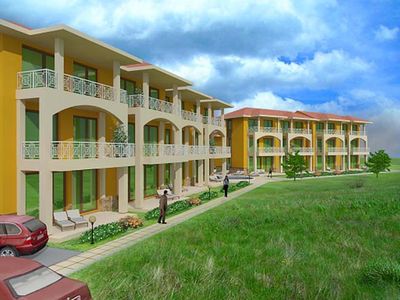

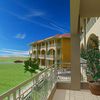
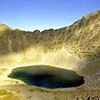



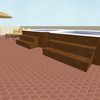
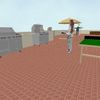
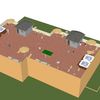
 kolgrimur
kolgrimur
 the-consultant
the-consultant
 prakkarinn
prakkarinn
 killjoker
killjoker
 halkatla
halkatla
 palmig
palmig
 saxi
saxi
 glauga
glauga
 vilhelmina
vilhelmina
 zeriaph
zeriaph
 arnaeinars
arnaeinars
 almaogfreyja
almaogfreyja
 gattin
gattin
 gudrunss
gudrunss